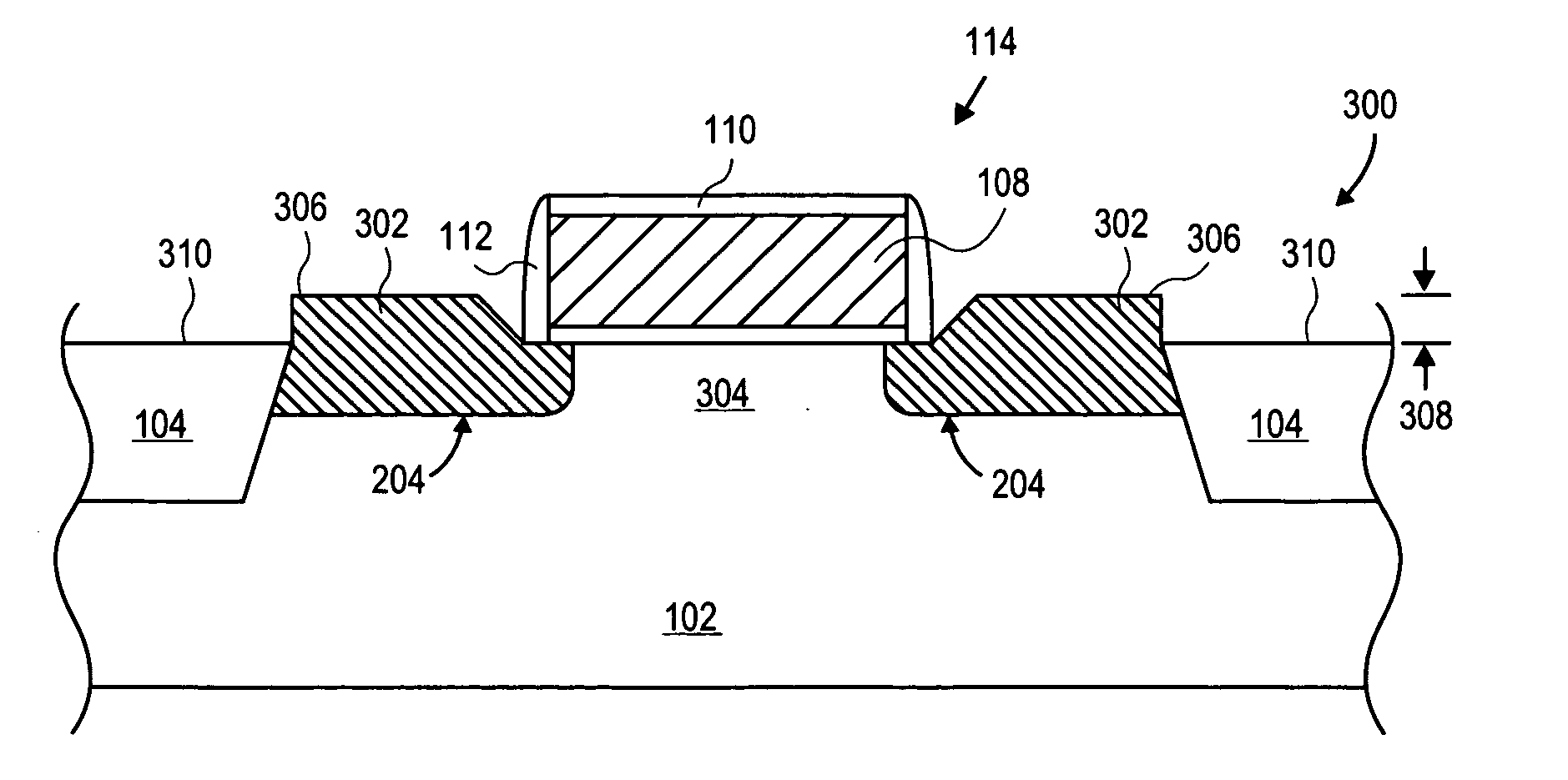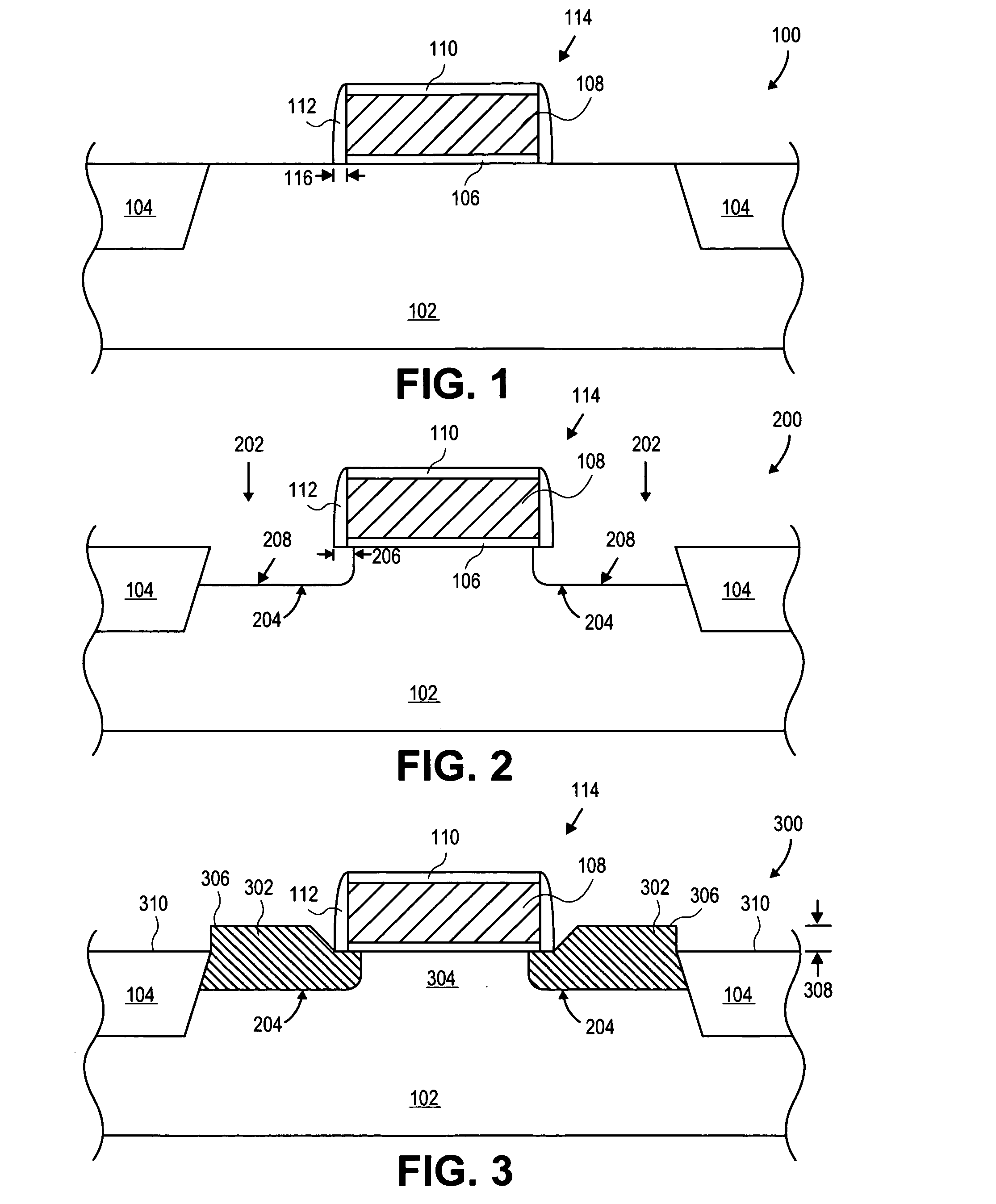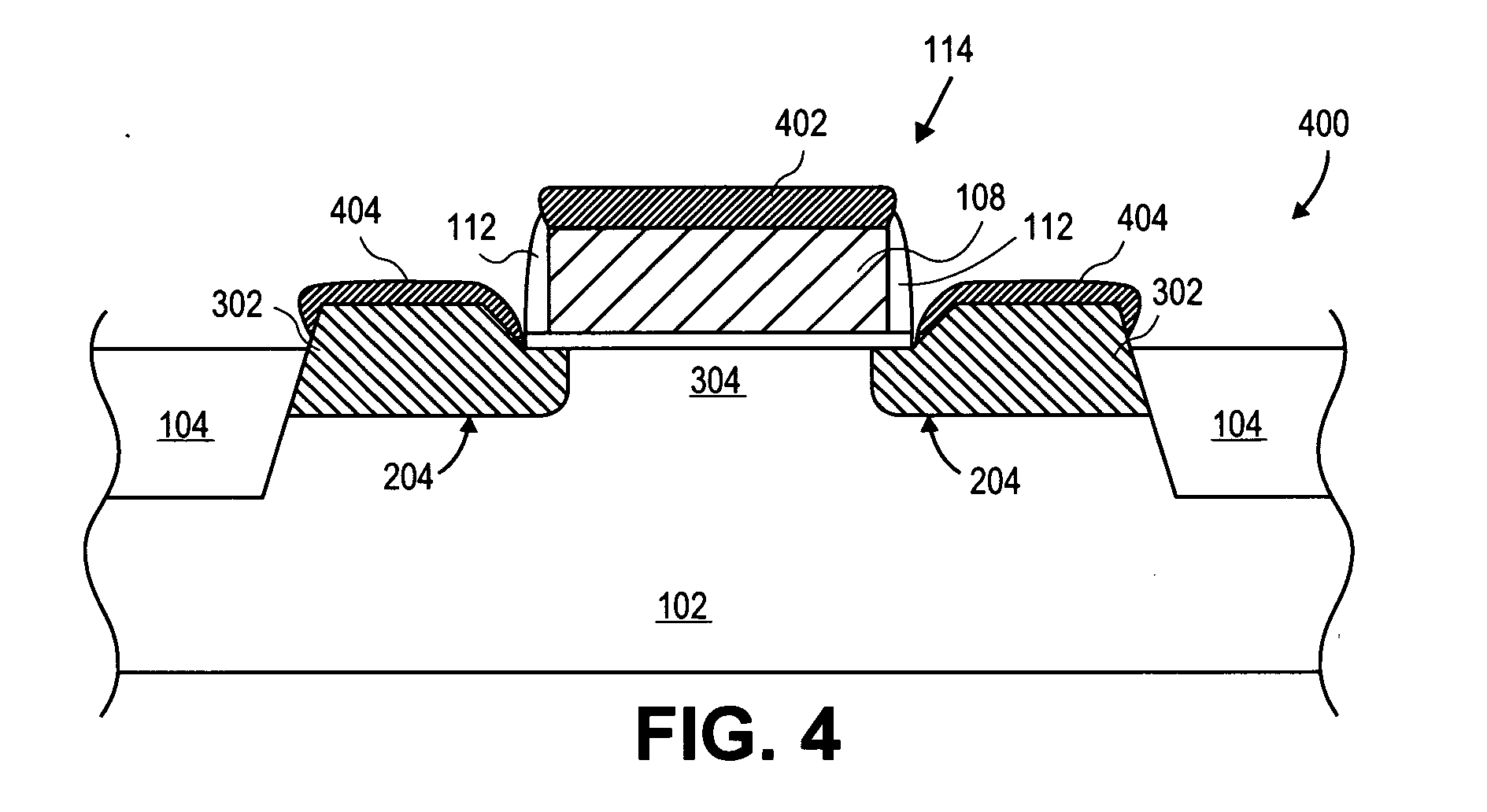Method for forming an integrated circuit
a technology of integrated circuits and integrated circuits, applied in the field of forming nmos transistors, can solve the problems of high dislocation defect density, high cost and complexity of the sige integration scheme, and the inability to generate high levels of tensile strain
- Summary
- Abstract
- Description
- Claims
- Application Information
AI Technical Summary
Problems solved by technology
Method used
Image
Examples
Embodiment Construction
[0013] In the following detailed description, an n-MOS transistor and its method of formation are disclosed. Reference is made to the accompanying drawings, which form a part hereof, and within which are shown by way of illustration specific embodiments by which the present invention may be practiced. It is to be understood that other embodiments may be utilized and structural changes may be made without departing from the scope and spirit of the present invention.
[0014] In one embodiment, recesses are etched in a semiconductor material (such as silicon), and source / drain regions are epitaxially deposited into the recesses. The source / drain regions can include carbon (C), phosphorus (P), or combinations thereof that have been substitutionally incorporated into the epitaxial silicon crystal lattice during the deposition process.
[0015] The carbon source for the epitaxial deposition can be a carbon-containing precursor, such as monomethyl silane, and the epitaxial deposition chamber ...
PUM
 Login to View More
Login to View More Abstract
Description
Claims
Application Information
 Login to View More
Login to View More - R&D
- Intellectual Property
- Life Sciences
- Materials
- Tech Scout
- Unparalleled Data Quality
- Higher Quality Content
- 60% Fewer Hallucinations
Browse by: Latest US Patents, China's latest patents, Technical Efficacy Thesaurus, Application Domain, Technology Topic, Popular Technical Reports.
© 2025 PatSnap. All rights reserved.Legal|Privacy policy|Modern Slavery Act Transparency Statement|Sitemap|About US| Contact US: help@patsnap.com



